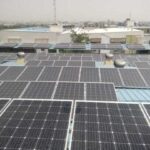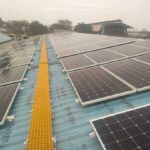India Solar Energy Policies: Key Updates and Government Initiatives
India Solar Energy Policies: Key Updates and Government Initiatives
India is one of the leading countries in terms of solar energy development, having become the fastest-growing market for solar power globally. India’s solar energy capacity has more than quadrupled in the past five years, increasing from 13,114 MW in 2017 to 57,705 MW in 2022.
India has an ambitious target to achieve Net Zero Emissions by 2070, in addition to attaining the short-term targets which include, Increasing renewables capacity to 500 GW by 2030.
To meet this goal, the government has introduced several policy initiatives and incentives such as increased financing, state initiatives, and tax benefits. These policies have helped to reduce the costs associated with solar energy projects, making them more attractive investments for both domestic and international investors. Furthermore, India’s strong technical know-how and its extensive infrastructure has enabled it to set new standards in solar energy production. As a result of these efforts, India is now a major exporter of solar energy, with most of its exports going to neighboring countries such as Bangladesh, Nepal and Sri Lanka.
Benefits of solar energy for India
1. Increased energy independence
Solar energy provides India with a source of renewable energy that can be used to reduce its dependence on fossil fuels and other imported resources.
2. Cost savings
Installing solar technology is becoming increasingly cost competitive in India with the decreasing prices of photovoltaic (PV) modules and other components.
3. Job creation
Solar energy projects in India are creating thousands of jobs, ranging from manufacturing to installation and maintenance.
4. Cleaner environment
By replacing traditional sources of power with solar energy, India can reduce its carbon emissions and help address climate change.
5. Improved access to electricity
Solar energy projects in rural areas are helping to fill the gap in access to electricity, providing clean and reliable power for people who don’t have access to traditional grids.
The government has introduced several policy initiatives and incentives that have helped to reduce costs, encourage adoption and attract investors towards solar energy.
Suggested Articles

How Installers Cut Costs on Solar PV Module Mounting Structures
Solar PV mounting structures can significantly impact project cost. Explore how expert installers optimize design, materials, and labor to achieve safe, durable, and cost-effective solar installations

Perovskite: Future of Solar Cells
Discover how solar batteries store excess energy, maximize your solar system’s efficiency, and provide reliable power during outages. Learn about the types, benefits, lifespan, and maintenance tips to make the most of your solar investment.

100 kW Solar Power Plant in Indore – Latest Cost, Subsidy & Payback Period
A 100 kW solar plant in Indore costs around ₹40–55 lakh in, offering annual savings of up to ₹10 lakh and a payback period of 4–6 years. Learn about installation, maintenance, and ROI to make your solar investment worthwhile.

Latest 100 kW Solar Plant Price in Delhi | Subsidy, ROI & Payback
Thinking about installing a 100 kW solar system in Delhi? This 2025 guide breaks down the 100 kW Solar Plant Cost in Delhi, explaining price per watt, total investment, energy generation, and key benefits for industries and businesses.

500 kW Solar System Price in Haryana: Latest Cost, Benefits & Savings
Looking to install a 500 kW solar system in Haryana? Discover the latest 2025 price range, government incentives, and key benefits for commercial and industrial users. Learn how adopting solar can cut electricity bills and boost long-term savings.

Improve Your Power Factor After Solar Installation: Complete Guide
Power factor after solar installation often fluctuates due to system design and load patterns. Learn the key causes, challenges, and solutions for better efficiency.

Solar Inverters India: How to Choose the Best for Your Solar System
India’s solar market offers a wide range of inverters, making selection challenging. This guide explains key factors to consider, helping users choose the right inverter for residential, commercial, and industrial solar projects effectively.

Law Change Makes It Hard to Receive Compensation for Solar Developers
A recent law change creates hurdles for solar developers seeking compensation, impacting project viability.